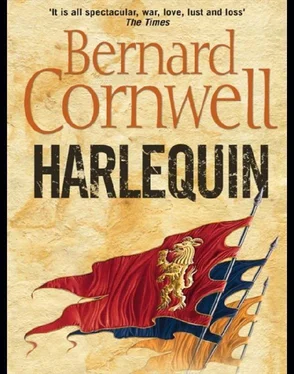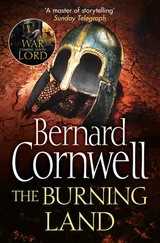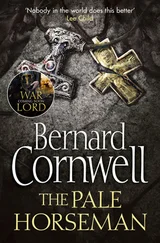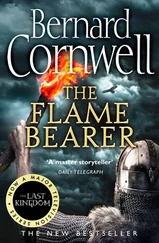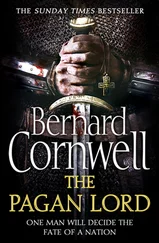Sir Simon Jekyll, and Henry Colley, his man-at-arms, were among the fugitives, and they were not refused admittance, for they both rode destriers and were in mail. Colley wore his own mail and rode his own horse, but Sir Simon's mount and gear had been stolen from one of his other men-at-arms before he fled from Caen. Both men carried shields, but they had stripped the leather covers from the willow boards so that the shields bore no device, thus declaring themselves to be masterless men for hire. Scores like them came to the city, seeking a lord who could offer food and pay, but none arrived with the anger that filled Sir Simon. It was the injustice that galled him. It burned his soul, giving him a lust for revenge He had come so close to paying all his debts, indeed, when the money from the sale of Jeanette's ships was paid from England he had expected to be free of all encumbrances, but now he was a fugitive. He knew he could have slunk back to England, but any man out of favour with the King or the King's eldest son could expect to be treated as a rebel, and he would be fortunate if he kept an acre of land, let alone his freedom. So he had preferred flight, trusting that his sword would win back the privileges he had lost to the Breton bitch and her puppy lover, and Henry Colley had ridden with him in the belief that any man as skilled in arms as Sir Simon could not fail.
No one questioned their presence in Rouen. Sir Simon's French was tinged with the accent of England's gentry, but so was the French of a score of other men from Normandy. What Sir Simon needed now was a patron, a man who would feed him and give him the chance to fight back against his persecutors, and there were plenty of great men looking for followers. In the fields south of Rouen, where the looping river narrowed the land, a pasture had been set aside as a tourney ground where, in front of a knowing crowd of men-at-arms, anyone could enter the lists to show their prowess. This was not a serious tournament, the swords were blunt and lances were tipped with wooden blocks, but rather it was a chance for masterless men to show their prowess with weapons, and a score of knights, the champions of dukes, counts, viscounts and mere lords, were the judges. Dozens of hopeful men were entering the lists, and any horseman who could last more than a few minutes against the well-mounted and superbly armed champions was sure to find a place in the entourage of a great nobleman.
Sir Simon, on his stolen horse and with his ancient battered sword, was one of the least impressive men to ride into the pasture. He had no lance, so one of the champions drew a sword and rode to finish him off. At first no one took particular notice of the two men for other combats were taking place, but when the champion was sprawling on the grass and Sir Simon, untouched, rode on, the crowd took notice.
A second champion challenged Sir Simon and was startled by the fury which confronted him. He called out that the combat was not to the death, but merely a demonstration of swordplay, but Sir Simon gritted his teeth and hacked with the sword so sav-agely that the champion spurred and wheeled his horse away rather than risk injury. Sir Simon turned his horse in the pasture's centre, daring another man to face him, but instead a squire trotted a mare to the field's centre and wordlessly offered the Englishman a lance.
Who sent it?" Sir Simon demanded.
My lord."
Who is?"
There," the squire said, pointing to the pasture's end where a tall man in black armour and riding a black horse waited with his lance.
Sir Simon sheathed his sword and took the lance. It was heavy and not well balanced, and he had no lance rest in his armour that would cradle the long butt to help keep the point raised, but he was a strong man and an angry one, and he reckoned he could manage the cumbersome weapon long enough to break the stranger's confidence.
No other men fought on the field now. They just watched. Wagers were being made and all of them favoured the man in black. Most of the onlookers had seen him fight before, and his horse, his armour and his weapons were all plainly superior. He wore plate mail and his horse stood at least a hand's breadth taller than Sir Simon's sorry mount. His visor was down, so Sir Simon could not see the man's face, while Sir Simon himself had no faceplate, merely an old, cheap helmet like those worn by England's archers. Only Henry Colley laid a bet on Sir Simon, though he had difficulty in doing it for his French was rudimentary, but the money was at last taken.
The stranger's shield was black and decorated with a simple white cross, a device unknown to Sir Simon, while his horse had a black trapper that swept the pasture as the beast began to walk. That was the only signal the stranger gave and Sir Simon responded by lowering the lance and kicking his own horse forward. They were a hundred paces apart and both men moved swiftly into the canter. Sir Simon watched his opponent's lance, judging how firmly it was held. The man was good, for the lance tip scarcely wavered despite the horse's uneven motion. The shield was covering his trunk, as it should be.
If this had been a battle, if the man with the strange shield had not offered Sir Simon a chance of advancement, he might have lowered his own lance to strike his opponent's horse. Or, a more difficult strike, thrust the weapon's tip into the high pommel of his saddle. Sir Simon had seen a lance go clean through the wood and leather of a saddle to gouge into a man's groin, and it was ever a killing blow. But today he was required to show the skill of a knight, to strike clean and hard, and at the same time defend himself from the oncoming lance. The skill of that was to deflect the thrust which, having the weight of a horse behind it, could break a man's back by throwing him against the high cantle. The shock of two heavy horsemen meeting, and with all their weight concentrated into lance points, was like being hit by a cannon's stone. Sir Simon was not thinking about any of this. He was watching the oncoming lance, glancing at the white cross on the shield where his own lance was aimed, and guiding his horse with pressure from his knees. He had trained to this from the time he could first sit on a pony. He had spent hours tilting at a quintain in his father's yard, and more hours schooling stallions to endure the noise and chaos of battle. He moved his horse slightly to the left like a man wanting to widen the angle at which the lances would strike and so deflect some of their force, and he noted that the stranger did not follow the move to straighten the line, but seemed happy to accept the lesser risk. Then both men rowelled back their spurs and the destri-ers went into the gallop. Sir Simon touched the horse's right side and straightened the line himself, driving hard at the stranger now, and leaning slightly forward to ready himself for the blow. His opponent was trying to swing towards him, but it was too late. Sir Simon's lance cracked against the black and white shield with a thump that hurled Sir Simon back, but the stranger's lance was not centred and banged against Sir Simon's plain shield and glanced off.
Sir Simon's lance broke into three pieces and he let it fall as he pressed his knee to turn the horse. His opponent's lance was across his body now and was encumbering the black-armoured knight. Sir Simon drew his sword and, while the other man was still trying to rid himself of the lance, gave a backswing that struck his oppon-ent like a hammer blow. The field was still. Henry Colley held out a hand for his winnings. The man pretended not to understand his crude French, but he understood the knife that the yellow-eyed Englishman suddenly produced and the coins, just as suddenly, appeared.
The knight in the black armour did not continue the fight, but instead curbed his horse and pushed up his visor. Who are you?"
Читать дальше
Конец ознакомительного отрывка
Купить книгу
